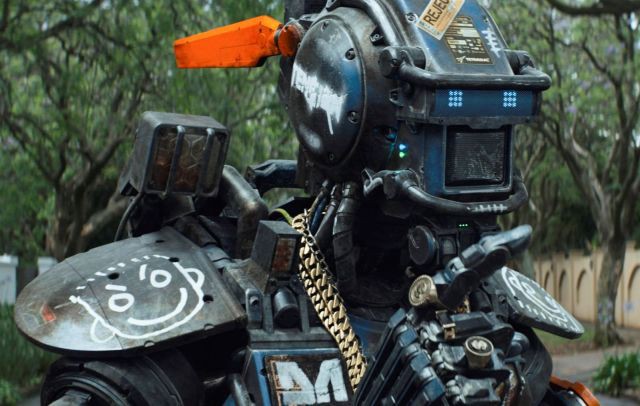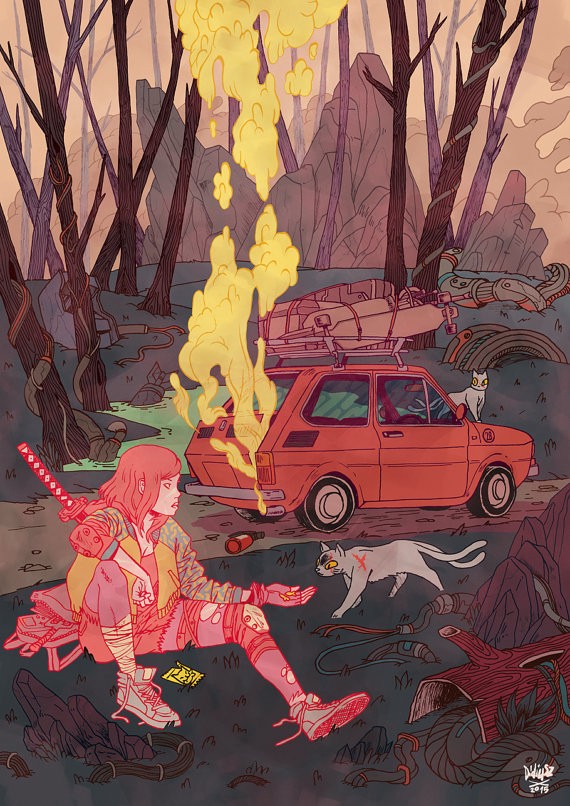
Artwork by TheoJunior.
I’m writing this on Thursday night. Yesterday two innocent black men were shot dead by police. You may be familiar with their names: Alton Sterling and Philando Castile.
The appropriate term for the willful elimination of life is “murder”, but numerous media outlets have used “officer-involved shooting”. (So ambiguous. So difficult to sue over.) This is one of the many details that add insult to injury.
The murders themselves weren’t unusual; cops kill people all the time, and frequently those people have brown skin. What’s unusual is that we’re all paying attention. For the moment.
Periodically this happens.
A video surfaces that shows the gory details — I mean “gory details” literally. I watched Philando Castile bleed out on Facebook Live while his girlfriend narrated her horror with eerie calm.
The video circulates widely. There is an outpouring of grief, and a corresponding outpouring of racist justification. Shoulda coulda woulda done this, that, or the other thing to avoid being executed by an employee of the state. (Don’t believe that people think this? Read the comments.)
Calls to actions and GoFundMe pages. (You can donate to both victims’ families here and here.) People, myself among them, urge you to contact the elected officials who ostensibly represent your interests.
All of this will subside. The reactionary shooting in Dallas, too, will blow over. A painful upheaval, a denouement, and then no movement until another tragedy provokes our outrage.
I don’t say this to try and minimize the pain or to diminish the sheer badness of these events. Neither am I making a new point. I am repeating what others have said: there is a pattern here.
Meanwhile, the dissemination of crucial information and the ensuing discussion of these events takes place on platforms ruled by billionaires (white men, natch) who aren’t remotely prepared to steward serious public discourse:
“Facebook has become the self-appointed gatekeeper for what is acceptable content to show the public, which is an incredibly important and powerful position to be in. By censoring anything, Facebook has created the expectation that there are rules for using its platform (most would agree that some rules are necessary). But because the public relies on the website so much, Facebook’s rules and judgments have an outsized impact on public debate.” — Joseph Cox and Jason Koebler on Vice’s Motherboard
Facebook pulled down Diamond Reynolds’ video of her boyfriend dying and then claimed it was due to a “technical glitch” — frankly, this strikes me as an outright lie. I would bet money that Facebook users reported the video and some underpaid moderator in another country, given no context, axed it because they thought it was just another snuff film.
I’ve argued before that human societies can’t escape from centralized power. Facebook is a centralized power with a huge and increasing influence over the information that is available to people, both in crisis and on a daily basis.
I’m still not sure that we can get away from central authorities, and I still don’t feel good about it. Authority warps people, even people with the best of intentions.
For example, Mother Jones sent reporter Shane Bauer undercover as a “correctional officer” at a private prison in Louisiana. This is a passage from his novella-length investigation, reflecting on how working as a prison guard changed him:
“Striving to treat everyone as human takes too much energy. More and more, I focus on proving I won’t back down. I am vigilant; I come to work ready for people to catcall me or run up on me and threaten to punch me in the face. I show neither fear nor compunction. […] It is getting in my blood. The boundary between pleasure and anger is blurring. To shout makes me feel alive. I take pleasure in saying ‘no’ to prisoners. I like to hear them complain about my write-ups. I like to ignore them when they ask me to cut them a break.”
No justice, no peace. Well, are we capable of justice or peace? Even though I run a dystopian newsletter, I want to believe that the world keeps improving slowly, even if change is only perceptible when we zoom out to decades or centuries. I want to believe that human nature’s best parts can win against its worst parts.
It’s hard to believe that on nights like this. We are a brutal species, and we wield every tool that we have brutally.




